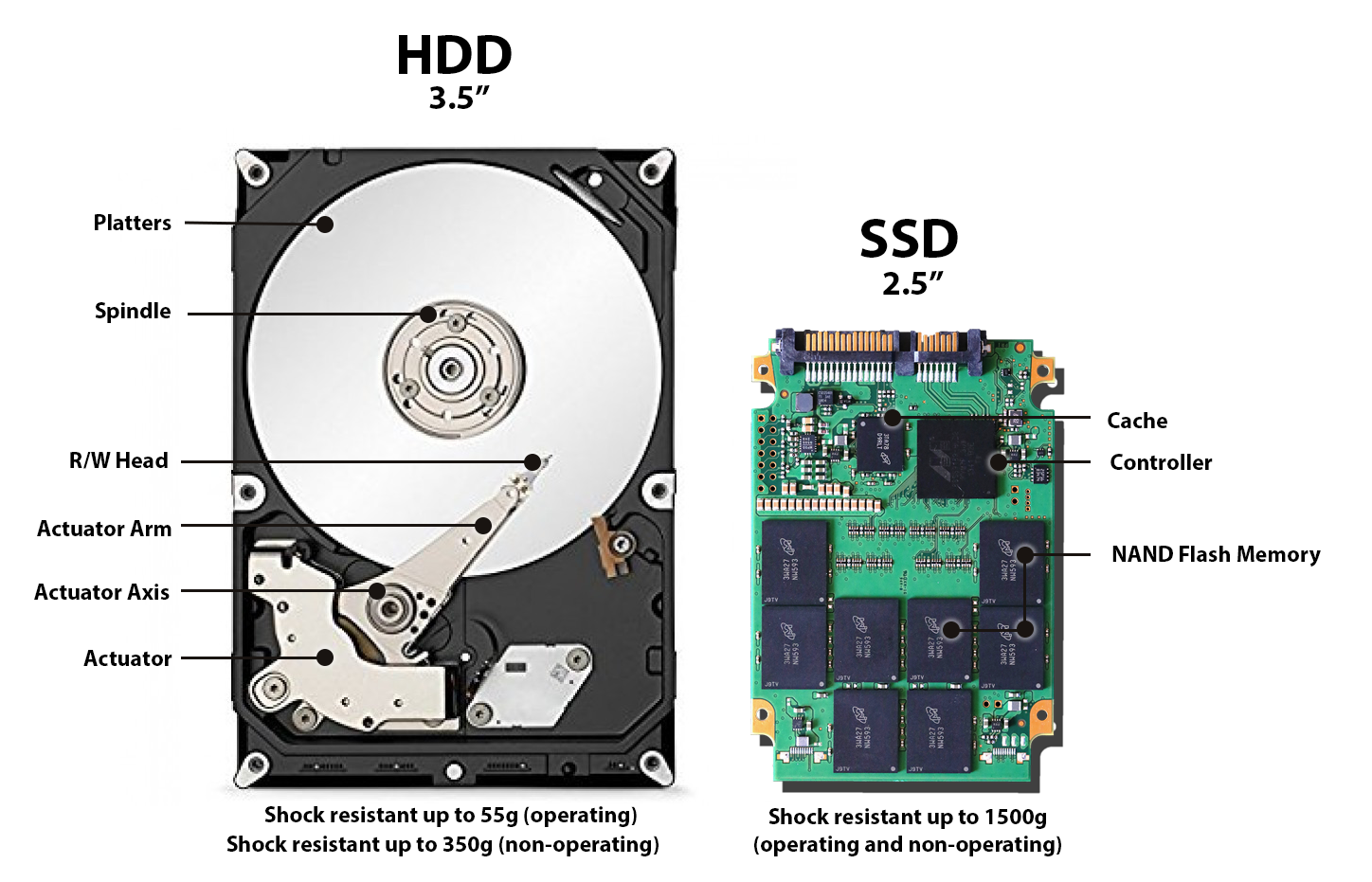So which is better – HDD’s or SSD’s?
If you are looking for the short answer – SSD’s are faster and more reliable than HDD’s.
Why are SSD’s better?
First off, SSD’s have no moving parts, unlike HDD’s. This fact alone makes them more reliable. Second, SSD’s use memory chips which are much faster than the spinning metal platters that make up HDD’s.
How do HDD’s work?
HDD’s consist of one or more metal ‘platters’ that spin around, usually between 5400 and 7200 RPMs. They have tiny metal arms with ‘heads’ on them that move back and forth over the platters to read and write data. The best analogy is the old phonograph; they have a record and needle that would ‘read’ the record and play music. HDD’s are very similar in their operation. That is why HDD’s don’t like to be bumped around when they are on, again just like an old phonograph, HDD’s ‘heads’ can scratch and ruin the data stored on the metal platters when bumped around while they are spinning.
How do SSD’s work?
SSD’s use memory chips that are capable of a great deal of reading and writing ability. With no moving parts, they don’t mind being bumped around at all. They also consume much less power and create much less heat than HDD’s – mostly because of no moving parts. This is especially important when used in a laptop.
Is there any application that HDD’s are better suited for?
Yes! If you have very large amounts of data constantly being read or written, i.e. backup drives, HDD’s are better suited. This is because SSD’s memory chips can ‘wear out’ long before HDD’s metal platters and ‘heads’ wear out.

Leave a Reply